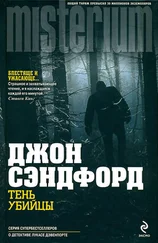ONE
Five years earlier, the high school guidance counselor sat Barney Hall down and said, “Barney, you’re bright enough, but you’re not college material. Not yet.” He was looking over Hall’s standard test scores and other accumulated records from thirteen years in the Lower Cape May Regional School District. “You’re not mature for your age. If you hadn’t been sent to detention once a week, you wouldn’t have done any studying at all.”
Hall was a cheerful, good-looking, middle-sized kid with broad shoulders and bright white teeth, who must have said a hundred times in his life, “Watch this—and hey, hold my beer, willya?”
He had a girlfriend named Sue, whom he’d known since fourth grade, who was happy to hold his beer, most of the time, and then apply the bandages afterward. Hall worked after school and all summers as a mechanic in his dad’s yacht salvage yard, or junkyard, depending on who was doing the talking.
“I’m trying to do better, sir,” he told the counselor.
“Don’t bullshit me, son. Would I be correct in believing that you were drinking beer at Toby Jones’s wedding last weekend and got drunk and fell off the dock and damn near drowned?”
“I’m a good swimmer, sir. There was no danger.”
“That’s not the point, Barney. Anyway, if you want to do anything in life, you need to get serious, and right quick. Knowing you, looking at these records, I’m thinking your best course would be the military. The military would give you responsibility from day one. If you don’t come through, they’ll slap your ass in the brig. You need that discipline. Mind, I’m not saying the Marine Corps. You’re way too smart for that.”
“I wasn’t thinking college, not right away,” Hall said. “I’ve been talking with Sue, and . . . How about the Coast Guard, sir? There’re some Coasties that hang out at my dad’s place and I like listening to them talk. I’ve been on the water and working on boats all my life.”
The counselor poked a finger at him: “That’s the smartest thing I ever heard you say, Barney. You do a few years in the Coast Guard, get yourself some rank and responsibility and they’ll even send you to college when you’re ready. God help me, you could wind up an officer.”
“Whoa. That’d be awesome, sir.”
“And do me a favor, son. Get rid of that T-shirt.” The T-shirt featured a basketball-sized, full-color image of a bantam rooster, with the legend, everything’s bigger in texas.
Hall looked down at the T-shirt. “It’s just a chicken, sir.”
“It’s a cock,” the counselor said. “You know it and I know it. I don’t want to see it in this school again.”
Hall married Sue the June after high school graduation, joined the Coast Guard at the end of a glorious summer, and after boot camp and advanced training, was stationed in Fort Lauderdale.
Sue Hall went to Broward College and became a registered nurse and started working on a bachelor’s degree in nursing. Hall found the boatyards of Marina Mile to be the most amazing places he’d ever been. When Sue got pregnant with their first one, he got off-duty work rebuilding diesel engines in one of the Marina Mile engine shops. The extra work would get them childcare money so Sue could finish her BS degree.
At night, they’d drink PBR under palm trees in their trailer park, until Sue got pregnant, when they switched to ginger ale, and she’d say, “Barnes, we’re gonna do good in life. I can feel it coming on.”
The owner of the engine shop had a pile of old boats out back, which he couldn’t sell, and Hall kept looking at a 1999 Boston Whaler 260 Outrage that had been stripped of the twin outboards and had a hole in the hull, and now sat derelict atop a tandem trailer with two flat tires on each side, overgrown with weeds. After some talk, the owner agreed to give Hall the boat along with two badly abused, but salvageable, Merc 225s and the trailer—all Hall had to do was work five additional unpaid hours a week, in the evenings and on weekends, on top of his regular weekend shift, for two years, and the boat was his.
Plus, he could use the shop and its tools to rehab the trailer and the Mercs and do whatever fiberglass work the boat needed. The boat was solid, except for the hole, which could be fixed.
That’s the entire backstory as to why Hall, Sue, and their first boy, Lance, almost a one-year-old, were trolling down the debris line on the outer reef south of Pompano Beach, Florida, looking for dorado—mahi-mahi—when Hall spotted something unusual happening with a snazzy-looking Mako center console a half mile ahead of them. He said, “Sue, hand me the glasses.”
The Mako had two white outboards hanging off the back, which Hall recognized as big 350s, giving the boat seven hundred horses with which to get across the ocean.
“What’s out there, Barnes?” Sue asked. She was a rangy young woman, would have been a cowgirl in Texas, sunburnt, fighter-pilot blue eyes, her rose-blond hair frizzy from salt water.
“Something strange going on, babe. I’ve been watching him, ’cause that’s a sharp boat. All of a sudden it slowed down and stopped and it looks like it picked up a diver in the middle of the ocean. I mean, who was already in the middle of the ocean before they got there. Went right to him.”
“You don’t see that every day,” Sue said.
Hall was still on the glasses. “He’s, uh, looks like they’ve got some lift bags coming over the side . . . in the middle of the ocean.”
“Maybe picking up some bugs?” She was referring to spiny lobsters.
“From a guy they left in the middle of the ocean?”
Sue said, with a sudden urgency, “Barnes, I’ve got a bad feeling about this. Let’s turn around. Bring the boat back north.”
“Yeah.” That seemed like a good idea.
Hall turned the boat in a wide fisherman’s semicircle and headed back north, but kept watching the Mako through the glasses. He was careful to be standing behind the center console when he used the binoculars, because he’d learned early in his Coast Guard training that if you saw somebody whose arms, head, and chest formed an equilateral triangle, they were looking at you through binoculars—and every few minutes, one of the men on the Mako would check them out with binoculars.
Twenty minutes after it stopped, the sleek-looking craft lurched forward and headed south. Hall got his cell phone, called in to the watch officer at the Coast Guard station at Fort Lauderdale.
“Sir, this is Barney Hall. I’m south of Pompano Beach in my own boat, but I saw something strange out here. There’s a black-and-white Mako 284 heading toward Port Everglades. We saw him picking up something from the middle of the ocean. He was running fast, then stopped, and there was a diver waiting for him right there in the water. There were no other boats around, no dive flag. They were using lift bags . . .”
“Can you stay with him, Hall?”
“No, sir, not entirely, he’s running fast. I can keep him in sight until he makes the turn. I’ll be a mile back of him by then.”
“He looked suspicious?”
“Yes, he did, sir. If I was on duty, I’d stop him, for sure.”
“We’ll do that, then. We’ll have somebody waiting for him inside.”
Hall told Sue to put on her life jacket and bring in the fishing lines; the baby was already wrapped in a fat orange PFD. He turned the boat and they tracked the Mako until it made the turn into the Port Everglades cut. Hall got back on his phone and called the watch officer and said, “It’s Hall, sir, he’s making the turn.”
“We’re on it, Hall. Good job.”
The Mako was ambushed by a Coast Guard RIB—rigid inflatable boat—which had orange inflatable tubes wrapped around a hard-shell hull. The petty officer second class who was running the boat got on channel 16 and called, “Mako 284 Chevere, this is the United States Coast Guard coming up behind to make a courtesy inspection. Cut your speed to five knots and hold your course. We’ll board you from the starboard side.”
Читать дальше
![Джон Сэндфорд Ocean Prey [calibre] обложка книги](/books/384313/dzhon-sendford-ocean-prey-calibre-cover.webp)










![Джон Ирвинг - Viename asmenyje [calibre]](/books/384315/dzhon-irving-viename-asmenyje-calibre-thumb.webp)
![Джон Ирвинг - Vandens metodas [calibre]](/books/384316/dzhon-irving-vandens-metodas-calibre-thumb.webp)